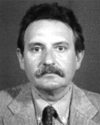International Politics
Venezuela’s Chávez maintains tough stance at home and in OPECCARACAS – The new year and (at last) the new millennium have brought various interesting developments to Venezuela. First, former Energy Minister Alí Rodríguez is now OPEC’s secretary general. Second, for the first time in more than 40 years, a civilian – José Vicente Rangel – has been named defense minister. According to the newly appointed interior and justice minister, 80-year-old Luis Miquilena (replacing Luis Alfonzo Davila, who was named foreign minister), this shows "the democratic and humanist character of this government" and a "re-launching of the government." Detractors say that it was a political error. Furthermore, President Hugo Chávez has declared his intention to resolutely pursue a policy of oil price defense – this has become a pillar of Venezuelan oil policy. "We will fight to keep our barrel above $22," proclaimed Chávez. "(To do this) we have started to move within our solid relations that we have made over the last two years, to detain the oil price fall. We aspire for a price around $25." One can see that the head-of-state is completely convinced about the benefits that Venezuela derives from OPEC cutting production and maintaining oil prices at what he believes is a "fair level." Alí Rodríguez commented on this theme, saying that "Venezuela’s new oil policy and, above all, the unexpected discipline which the country has maintained since then with regard to the upper limits of production established by OPEC’s partners, was a decisive element that contributed to the sustained increase in prices." OPEC is now "more mature" in his eyes. He believes that the group should move to some form of common contractual model, to avoid competition between members. This, he said, would contribute to OPEC countries’ income stability and improve planning. It is worth noting that PDVSA’s investments have not been affected by production cuts – investments for 2001 have been increased 22%, mainly in exploration and production. Production capacity is set to rise to 4.194 million bopd from 3.9 million bopd. These investments have made local service companies very happy, even with the production cuts. The new Venezuelan energy minister, 71-year-old Alvaro Silva Calderón, holds a doctorate degree in law. He played an important role in the design of Venezuelan oil legislation relating to the reversion of concessions and to nationalization of the oil industry. In other words, he is a heavyweight. He further clarifies policy by stating, "It is not right that the countries with natural resources should be converted into providers of services. It is not right that they tell us that while the product is in the ground it is worth nothing. So, they are going to pay us what it costs to extract it plus a reasonable profit." Silva also believes that it is fundamental to industrialize oil within national boundaries – "internalization," as it is known – to develop the economy. This is an important policy point and, if successful, it could overcome some of the worries expressed by various observers and analysts. One could argue that the great challenge faced by President Chávez is just what Silva has been pointing to – how to give the country stability and macroeconomic equilibrium. This is not an easy thing to attain, as expressed in a Goldman Sachs report, which said that in 2002, the country could face serious problems resulting from an oil price fall. Others have indicated that a governmental oil policy based on high, increasing oil prices is not sustainable and would necessitate a severe fiscal adjustment. Therefore, it will be important to manage this year well. According to Salomon Smith Barney, Venezuela’s economy is going to grow 5.2% this year, with international reserves at $27 billion, and the country’s oil export basket at $21.70/bbl. This has led to positive expectations. From other quarters, the outlook is not so bright: Moody’s noted that Venezuela’s oil policy has changed from "a strategy of successful expansion" to one "based on international cooperation to raise the oil price." This means that PDVSA’s capacity to invest in the energy sector could be reduced. The ball does not stop here, however. PDVSA’s tax payments to the government contribute to federal education, health and social services. So what is at stake is not just the health of the national oil company but the welfare of the population, especially the poorer sectors of society – the bedrock supporters of the present government. The president is still very popular, although his rating has dropped to just over 40% from more than 60%. This is considered a high level after two years in office, but it is also a very skewed distribution, with a high number of those polled representing society’s "D" and "E" segments. The point now seems to be that even though Chávez is popular, there is doubt in various societal sectors that the regime can come up with the goods. The government must dispel this doubt. Oil policy must be seen to bear fruit in economic and
social development, and in welfare terms. The question is whether this will be possible, if the price for the
Venezuelan oil export basket falls below the 2001 budget estimate of $20/bbl.
Stuart Wilkinson is a Caracas-based journalist with extensive experience covering Venezuela’s petroleum industry. He currently is editor of the English section of the magazine, Enfoque Petrolero. He is a regular contributor to this column. |
- Applying ultra-deep LWD resistivity technology successfully in a SAGD operation (May 2019)
- Adoption of wireless intelligent completions advances (May 2019)
- Majors double down as takeaway crunch eases (April 2019)
- What’s new in well logging and formation evaluation (April 2019)
- Qualification of a 20,000-psi subsea BOP: A collaborative approach (February 2019)
- ConocoPhillips’ Greg Leveille sees rapid trajectory of technical advancement continuing (February 2019)



